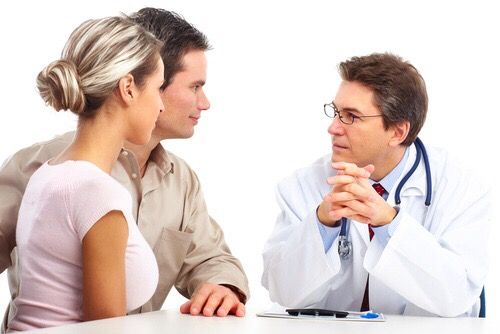Herpes and chlamydia are two of the most common STD’s out there. If you’re sexually active, you’re at risk for an STD. While condoms are the best way to prevent contraction of an STD, they’re not 100 percent effect. All sexually active individuals should be regularly tested for STDs.
Genital Herpes
Genital herpes is caused by two types of viruses: herpes simplex 1 and herpes simplex 2. In the United States, it’s estimated that about 1 in 6 individuals ages 14 to 49 have genital herpes. This disease is spread through all forms of sexual intercourse. The only way to avoid contracting herpes is abstinence.
Symptoms of genital herpes are vast. This disease can be spread whether you’re experiencing an outbreak or not. The most obvious symptom are one or more open sores around the mouth or genital areas. During your first outbreak, you may also experience fatigue, fever, and body aches.
Over the years your body will have fewer outbreaks, however, you’re never cured of genital herpes and should inform your partner of your infection. Medications can help shorten outbreaks and lessen symptoms. Avoid spreading the disease by not touching open sores.
Genital Herpes Treatment
Your physician will help you determine the best treatment path for herpes. The most important component of treatment is getting enough rest, eating healthy, and not spreading the disease through touch.
Drugs like Valtrex help slow the herpes virus and equip your body to better fight it. Acyclovir is an antiviral cream that also helps the body fight infection. The sooner you start on these medications, the sooner you’ll experience relief from the painful symptoms of herpes.
Chlamydia
Chlamydia is a bacterial infection that impacts both men and women. If left untreated it can cause serious damage to a woman’s reproductive system, making it impossible to conceive a child in the future.
Chlamydia is spread through all forms of sexual intercourse, and can be passed from men even if they do not ejaculate.
The only way to completely eliminate your risk of contracting chlamydia is by avoiding sex altogether. You can lessen your chance of contraction by using a condom every time you have sex and by limiting the number of sexual partners you have.
Common symptoms of chlamydia in women include a foul odor and greenish/yellow discharge. You might also experience pain while urinating. Men might have swelling in their testicles, along with a burning sensation while urinating.
Chlamydia Treatment
Chlamydia can be cured through treatment with antibacterial drugs. Your doctor will test for chlamydia usually using a urine sample or swab of your genital area. Some of the most commonly prescribed drugs are doxycycline, azithromycin, erythromycin, levofloxacin and ofloxacin. Your doctor will take into consideration your medical history and lifestyle prior to determining which course of treatment would work best for you. Although you can be cured, you can contract the disease repeatedly if you’re not careful.

